Page Hero
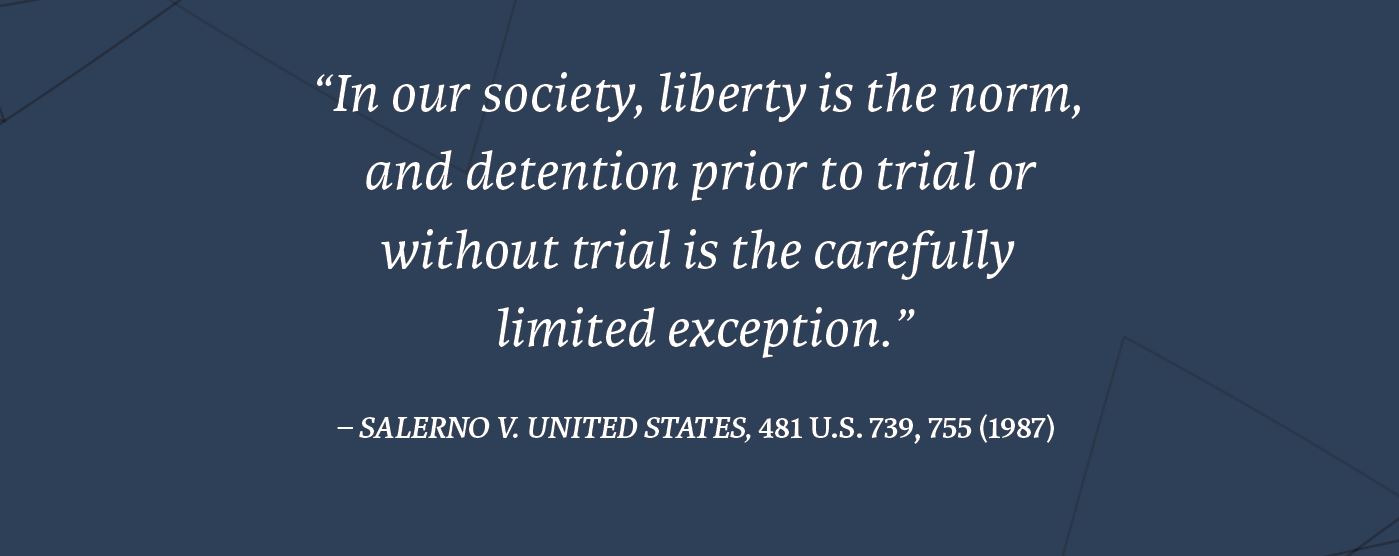
Pretrial Release Advocacy
Despite assurances that “[i]n our society liberty is the norm, and detention prior to trial . . . the carefully limited exception,” over 75% of those detained in local jails have not been convicted of a crime. Two-thirds of state pretrial populations are held for non-violent offenses, and the racial disparities which plague the criminal legal system are especially pronounced in pretrial decisions. With pretrial decisions having substantial, long-term case impacts, the uses and abuses of pretrial detention erode the presumption of innocence and destroy any sense of justice.
Bail Manuals & Videos NACDL Pretrial Policies Racial Disparity Risk Assessments Role of the Judiciary State Reform Efforts Systemic Litigation Additional Resources
Currently the Supreme Court's promise that pretrial detention be a limited exception occurring only after a meaningful adversarial hearing lays broken in state and federal courts across the nation as pretrial populations frequently outstrip the number of persons held in those same jails serving sentences.{1} 1 Incarceration Trends, Vera Institute for Justice. The consequences reverberate throughout the court process and the community.
Those in pretrial detention face the loss of employment and housing; suffer disruptions in education, medical treatment, and medications; and experience serious damage to their family and community relationships. Persons held in pretrial detention are more likely to plead guilty, to be convicted at trial, to be sentenced to jail and prison, and to receive longer carceral sentences than peers who are released pending disposition.{2} 2 Lowenkamp, VanNostrand, Holsinger, Investigating the Impact of Pretrial Detention on Sentence Outcomes LJAF, (2013) Those held in jail even for a few days are at greater risk of being re-arrested both while their case is pending and up to 2 years after the case concludes.{3} 3 Lowenkamp, VanNostrand, Holsinger, The Hidden Cost of Pretrial Detention (2013)
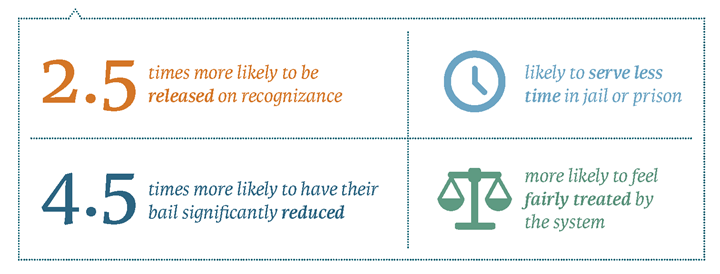
When defense attorneys are present, defendants are more likely to be able to present favorable and verified information to the court establishing that a defendant is not a flight risk and will return to court if released. They are able to identify potential legal defenses, raise issues regarding the sufficiency of the charges and challenge whether there was probable cause for the defendant’s arrest. They can advocate for the least restrictive conditions of release that will reasonably ensure a defendant’s attendance at court proceedings and protect the community. They can identify defendants who may be eligible to participate in drug treatment, diversion programs or other pre-adjudication alternatives to incarceration.
NACDL Bail Manuals and Training Videos
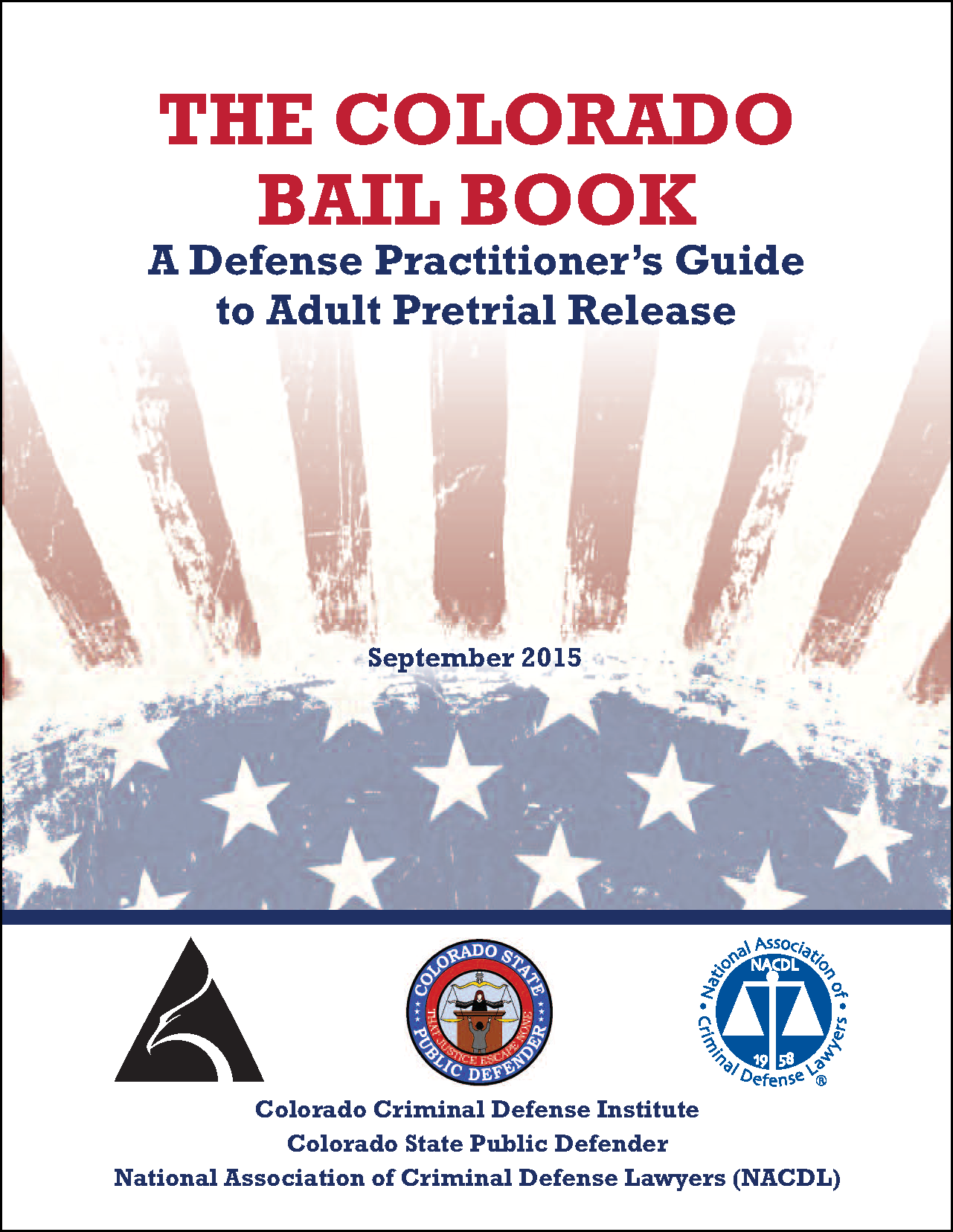 Colorado Bail Manual
Colorado Bail Manual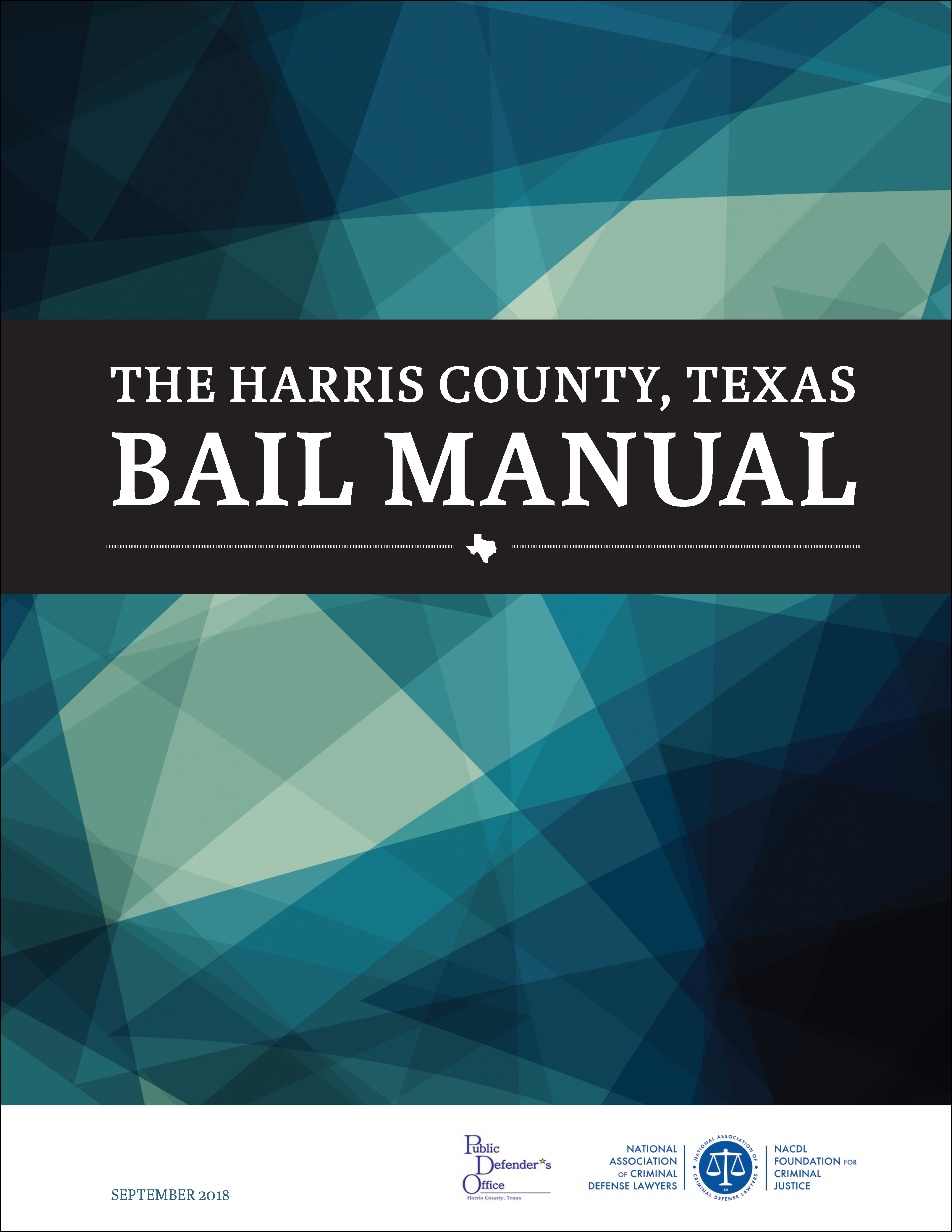 Harris County Bail Manual
Harris County Bail Manual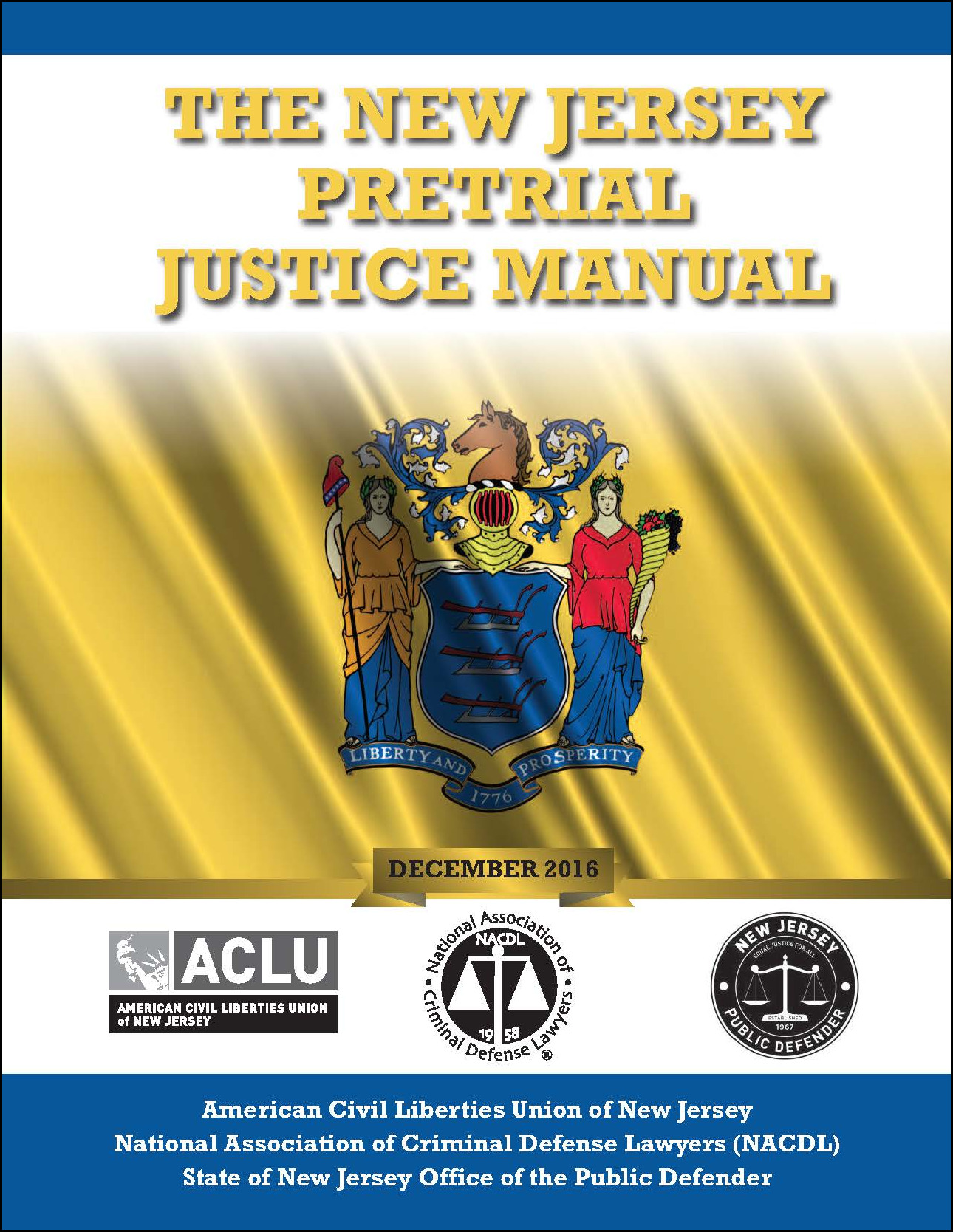 New Jersey Bail Manual
New Jersey Bail Manual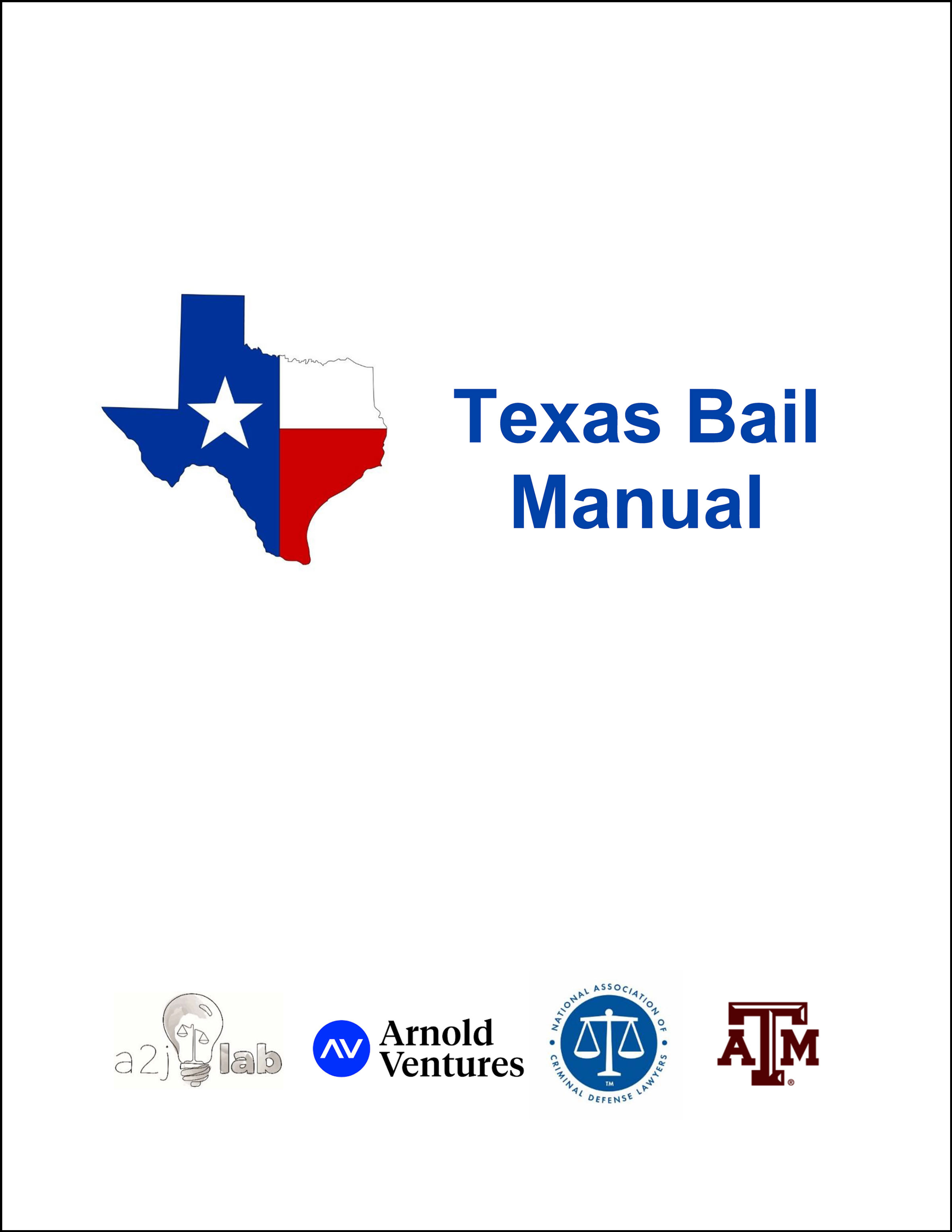 Texas Bail Manual
Texas Bail Manual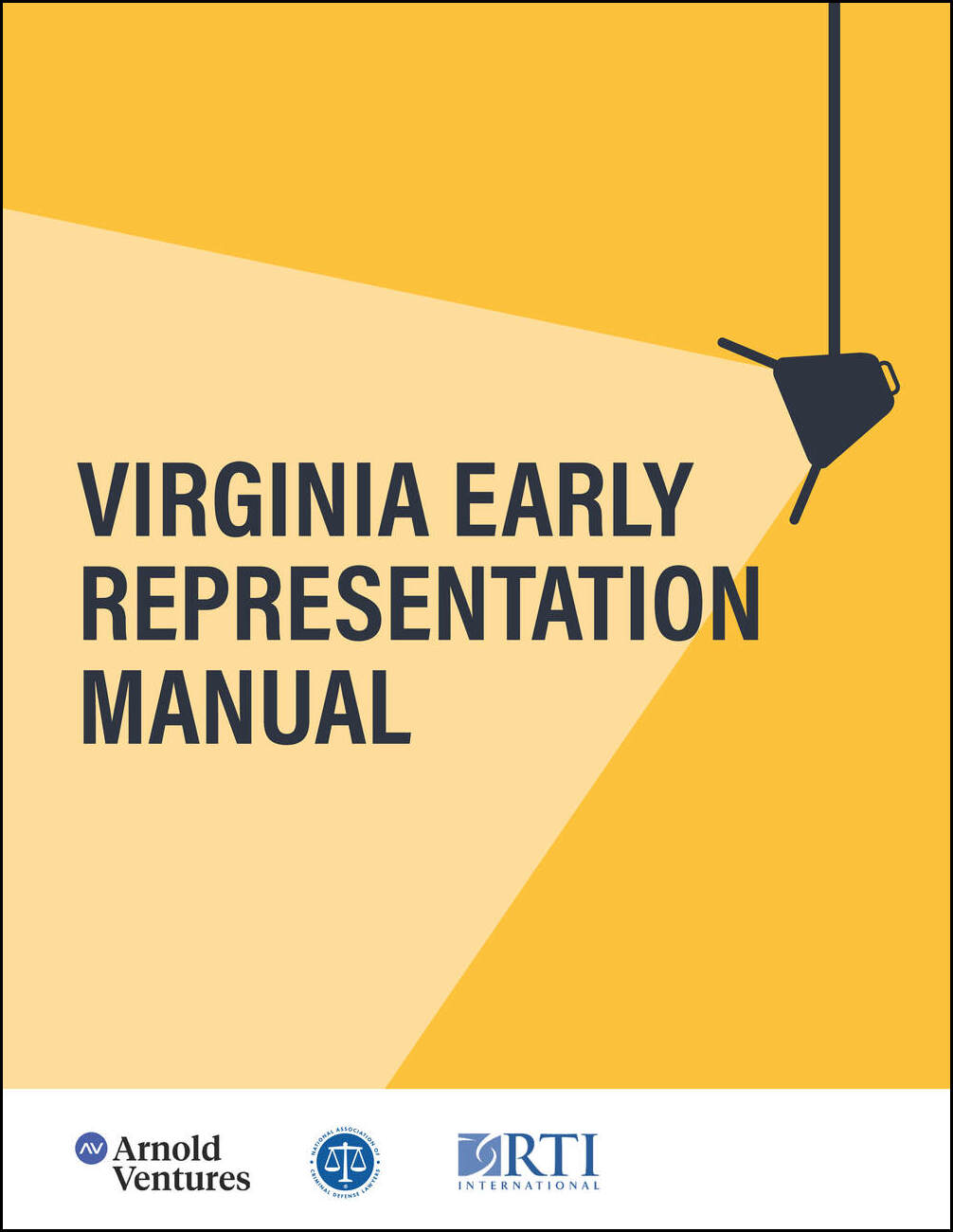 Virginia Bail Manual
Virginia Bail Manual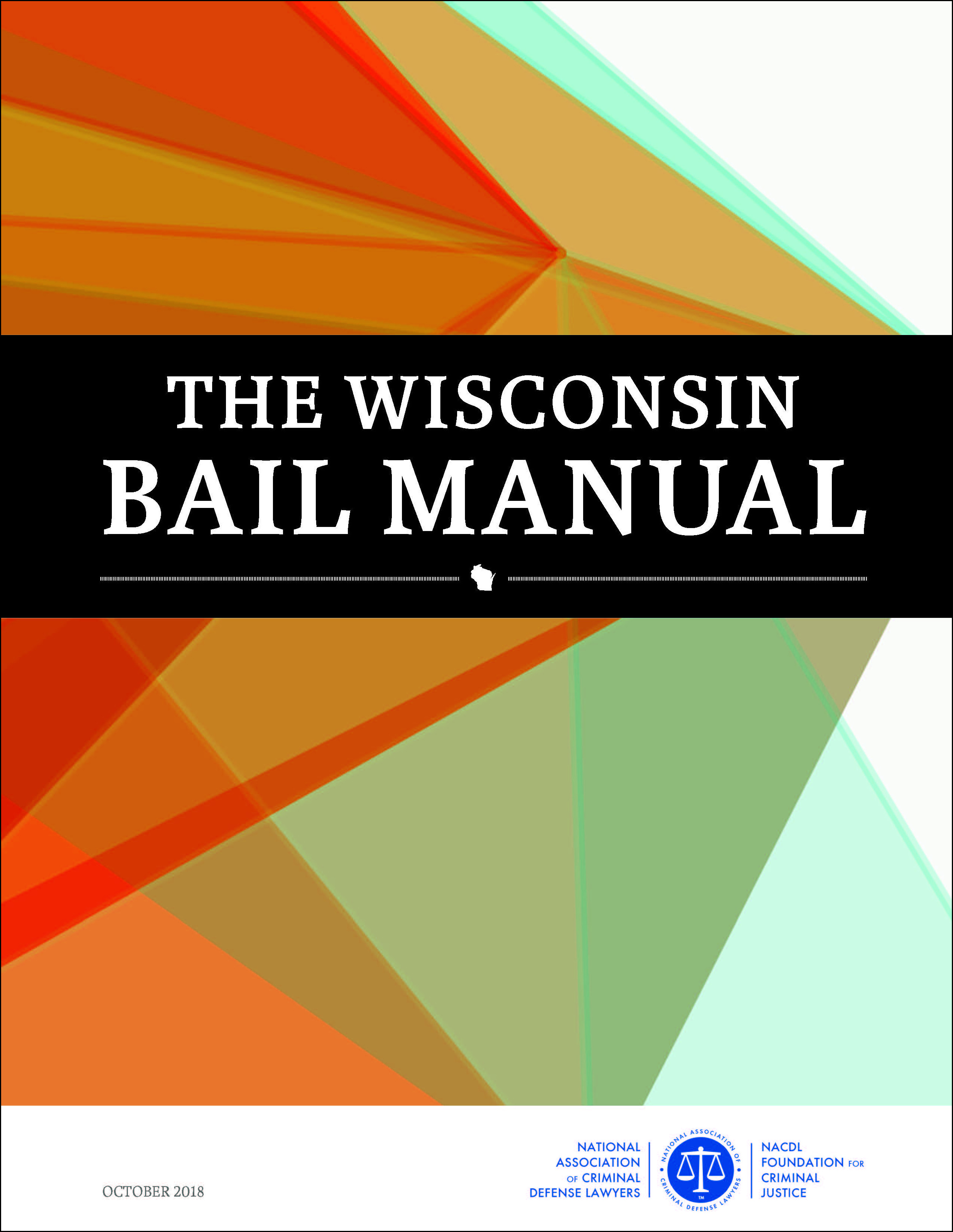 Wisconsin Bail Manual
Wisconsin Bail Manual
NACDL has developed pretrial advocacy tools for Colorado, Harris County (TX), New Jersey, Virginia, and Wisconsin. Developing bail and early representation manuals for each jurisdiction, NACDL has created courtroom resources to aid defenders in advocating for their client's release. Each includes materials on relevant state and federal statutes, interviewing techniques, and other advocacy tools. The manuals also provide information on the uses and limitations of any risk assessment instruments utilized in the jurisdiction. These guides are a resource not only for those practicing in these jurisdictions, but for anyone seeking additional resources on pretrial advocacy.
NACDL Policies for Pretrial Practices
NACDL advocates for pretrial practices which promote liberty, protect due process, and ensure the fair and equal treatment of all persons who are accused of criminal offenses. These include:
- The Right to Counsel at First Appearance
- Presumptions for Release
- Limited Use of Financial Bonds
- Elimination of the Use of Commercial Sureties
- Prompt Review of Detention Decisions
- Concerns About Risk Assessment Instruments
Resources on Racial Disparity in Pretrial Practices
The racial disparities that are pervasive in the criminal legal system are magnified at the pretrial stage as persons of color regularly receive higher bails and more onerous release conditions than their similarly situated white peers.{4} 4 Racial Bias in Bail Decisions, Arnold, Dobbie, C.S. Yang (2018)
NACDL is committed to addressing systemic racial disparity throughout the criminal system. In 2017 NACDL hosted its first Race Matters Conference, bringing together researchers, reformers, and practitioners to discuss issues of racial bias in the criminal legal system and how defenders can mount effective challenges to these practices. In November 2020 NACDL will host Race Matters 3 in Charleston, SC.
More on Racial Disparity in Pretrial Practices
Risk Assessment Instruments
As the debate about pretrial practices and the use of cash bail has grown and evolved, so too has the discussion around risk assessment instruments. Once heralded as tools to simultaneously improve equity and public safety, increasingly concerns have arisen regarding the dangers of algorithmic decision-making. From the use of data points already steeped in racial bias and disparity to their equating rates of re-arrest with "risk of re-offending" to their use as a shortcut to replace due process and a meaningful pretrial adversarial system, the list of concerns on the implementation of these tools continues to grow.
More on Risk Assessment Instruments
State Reform Efforts
Across the country states are enacting legislation targeting changes to their pretrial practices including the detention of those charged with misdemeanor offenses, the use of monetary bail conditions, and risk assessment instruments.
More on State Pretrial Reforms
Systemic Litigation
In addition to legislative efforts, a number of lawsuits challenging state and local procedures and practices relating to the setting of bail and release conditions as violating equal protection and due process protections have occured. The suits have helped shine a light on the fundamental problems when release decision are based upon access to wealth.
The Judiciary's Role in Pretrial Justice
By promoting practices that ensure individualized decision-making, protect due process, provide access to counsel, conduct meaningful scrutiny of probable cause statements, and decrease reliance on monetary bail and unnecessary release conditions, judges can positively support meaningful improvements to pretrial practices without compromising concerns about public safety.













